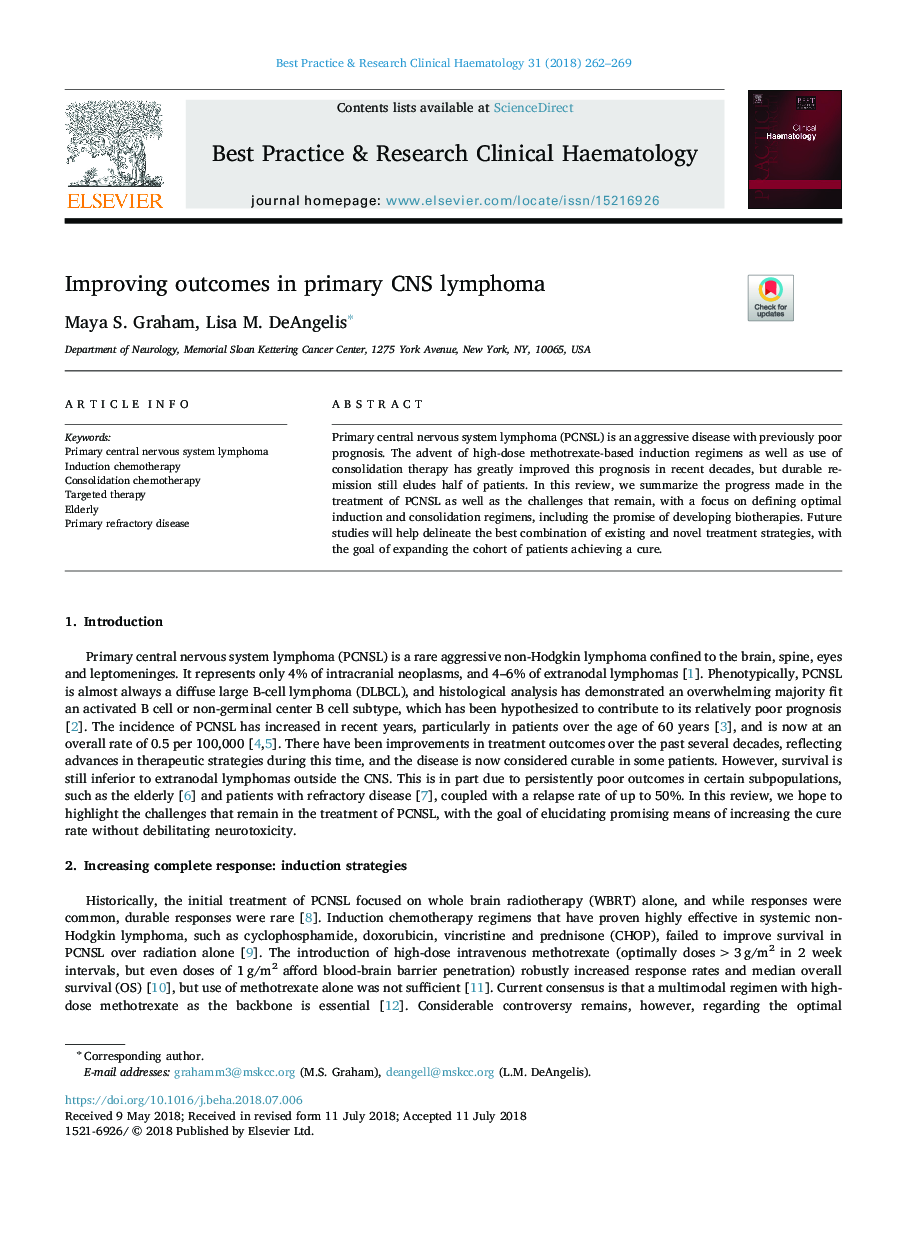| Article ID | Journal | Published Year | Pages | File Type |
|---|---|---|---|---|
| 10157429 | Best Practice & Research Clinical Haematology | 2018 | 8 Pages |
Abstract
Primary central nervous system lymphoma (PCNSL) is an aggressive disease with previously poor prognosis. The advent of high-dose methotrexate-based induction regimens as well as use of consolidation therapy has greatly improved this prognosis in recent decades, but durable remission still eludes half of patients. In this review, we summarize the progress made in the treatment of PCNSL as well as the challenges that remain, with a focus on defining optimal induction and consolidation regimens, including the promise of developing biotherapies. Future studies will help delineate the best combination of existing and novel treatment strategies, with the goal of expanding the cohort of patients achieving a cure.
Keywords
Related Topics
Life Sciences
Biochemistry, Genetics and Molecular Biology
Cancer Research
Authors
Maya S. Graham, Lisa M. DeAngelis,
